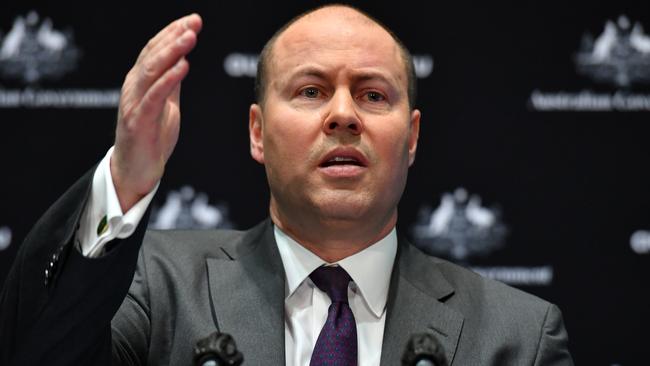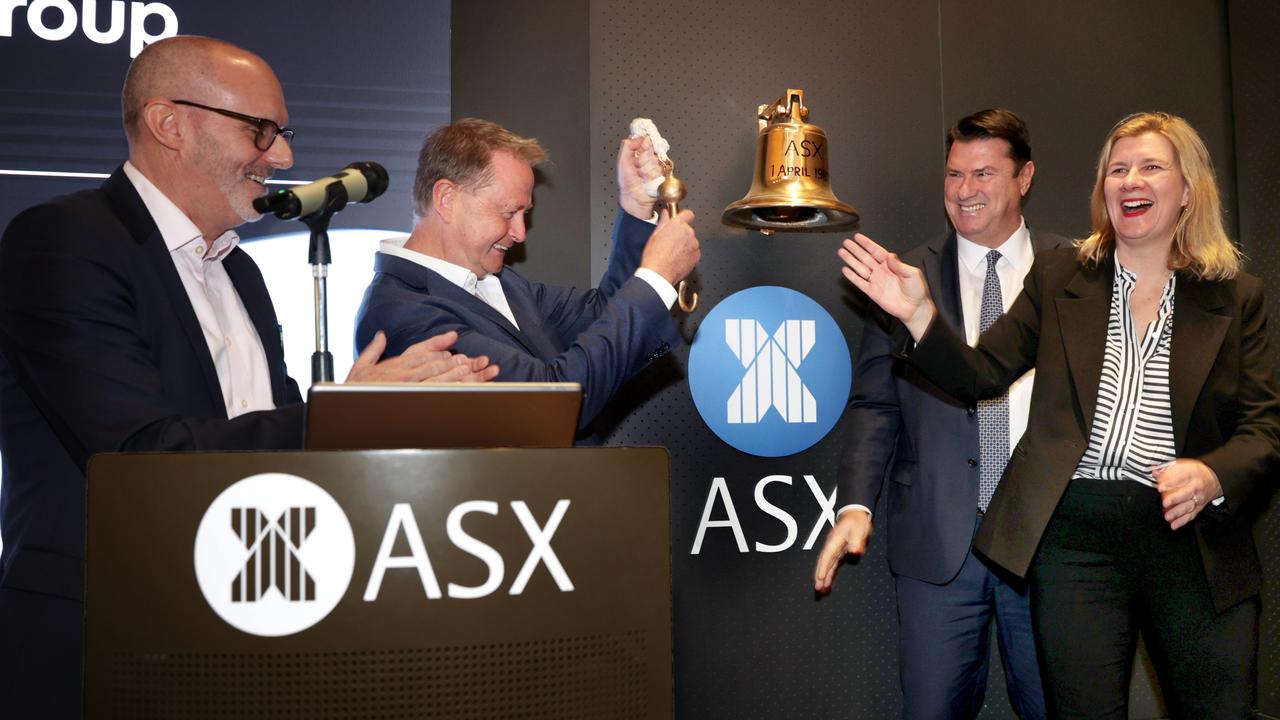
The way FIRB works Frydenberg didn’t actually knock back the 25 per cent Chinese government-owned vehicle; he simply made it known he was planning to reject it on nonsensical “food security grounds”.
Technically no decision was made and instead it was Lion and Mengniu that pulled the bid but we all know they were warned off.
That’s a nonsense process in the first place — if the government knocks back a $600m deal it should at least publicly say so.
Instead the parties involved read the tea leaves and canned the deal.
All the plaudits that flowed to Frydenberg on Tuesday would have had some credibility if he actually had made a decision on the deal, which he was ever so careful not to do.
The Kirin-controlled Lion will now decide whether to see what progress can be made with two potential offers or whether to hold on to the business for a while longer.
Potential offers include one from the heavily indebted Bega Cheese and John Wylie’s Tanarra Capital.
The assets include Yoplait yoghurt, Big M flavoured milk, fresh milk supplying Coles and Woolworths house brand milk, as well as Pura branded milk, Berri fruit juices and the jewel in the crown: a distribution network of fridges in corner stores and petrol stations to rival that controlled by Coca-Cola Amatil.
It supplies a bunch of food service businesses and pubs which thanks to COVID won’t be travelling too well in Victoria at least and this may impact the sale price.
While the commercial process works through, the issue is a basic lack of transparency.
The buyer, Mengniu, was last November cleared by FIRB to spend $1.5bn buying infant milk powder maker Bellamy’s and four years ago was cleared to spend $150m buying control of Gippsland dairy group Burra.
Consistency has never been a hallmark of foreign investment policy, which is another issue.
The seller in this case was Japanese company Kirin, so it was a straight foreign to foreign deal and the ACCC cleared the transaction in February.
At an official level the deal was cleared shortly after, but then the politicians got involved and the deal ran into problems.
Relations between Australia and China are not flash, as evidenced by tariffs imposed on barley, warnings against Chinese students travelling to Australia, and last week’s threat to impose dumping duties on Australian wine.
Frydenberg told Mengniu he was “minded to reject the deal on food security grounds”.
This preliminary view is sometimes the trigger for the buyer to get some Australian involvement to ease the concerns.
This didn’t happen and with today being the drop-dead date on the deal, Lion had the chance to decide whether to proceed.
Canberra encourages the parties involved to call it off themselves because this lets the Treasurer off the hook.
As noted earlier a more open-minded Treasurer might think there was the perfect chance to save $1bn a year in wine exports by offering an olive branch by clearing the deal.
No luck on that score, and the “food security” excuse offered is a joke.
In New Zealand the government makes formal statements when knocking back such deals but in Canberra Frydenberg would prefer to say nothing.
He is in the process of reforming FIRB rules to effectively codify existing practice in taking account of defence and security issues in considering foreign takeovers.
This offers the perfect chance to bring transparency to FIRB rules.
If Frydenberg is going to change the rules on political grounds you might think he would have the courage to say so.
Super loophole closed
Superannuation reform is a lengthy process but Assistant Treasurer Senator Jane Hume has finally closed the loophole allowing some industry awards to mandate fund choices, which meant retail workers went into REST and academics into Unisuper.
Now the Your Super Your Choice legislation is through parliament some big decisions are still to come on how to choose default fund options.
This will come when the government makes its response to the Productivity Commission’s super reports handed to it two years ago.
Then there is Mike Callaghan’s report on retirement incomes, which was handed to the government several weeks ago and is expected to be used along with COVID as the excuse for overturning policy in favour of an expansion of the super guarantee from 9.5 to 12 per cent over four years.
Insolvency rules OK
As the federal government considers reform to the insolvency rules, the Virgin process now being conducted in extraordinary times may be a sign the present rules work OK.
Modifications are no doubt needed and directors will be seeking more protection from rules against trading when insolvent but the creditor-based system run by an administrator willing to take risks has worked.
The US Chapter 11 scheme is debtor-led with the company effectively run by the court, with the aim of keeping creditors at bay while the company is resurrected.
Bain’s $3.5bn acquisition of Virgin should be formally approved on Friday week, but it has effectively run the company for two months under the guidance of Virgin’s Paul Scurrah and his management team.
Unsecured bondholders tried to kick up a storm but in the end will get 13c in the dollar, which works out at 3c above the bonds’ trading price when the company went under in April.
The voluntary administration process gives enormous discretion to the administrator, who is meant to make decisions approved by the creditors.
But the agreement with Bains two months ago effectively handed them the keys to the house because if its deed of company arrangement failed then they had the right to buy the assets.
When appropriate administrator Vaughan Strawbridge gained court approval, so the process has arguably worked out cheaper and more efficiently than a Chapter 11 process.
Still, in just over four months Deloittes has picked up $26.8m in fees for handling the sale.
The sale will not formally happen until Friday week when its deed of company arrangement is approved by creditors, but was effectively completed months ago.
Bain committed $3.5bn for the airline, which when Deloitte came in on April 21 had an equity value of $726m and debts of $6.8bn.
Clayton Utz and other lawyers picked $8.7m in fees, and advisers like Morgan Stanley and Houlihan Lokey collected $16m.
Deloitte was appointed on April 21 but the actual insolvency trigger came a month earlier on March 22 when the government shut down local aviation.
Strawbridge and Bain chief Mike Murphy also took the unusual step of anointing existing boss Paul Scurrah and his team to lead the company back to life.
The deals with secured creditors won’t happen until after Bain is formally anointed next week but creditors are being assured the groundwork is well progressed.
Time will tell.








Federal Treasurer Josh Frydenberg has missed the perfect opportunity to offer the Chinese an olive branch to ease trade tensions by deciding against the proposed $600m purchase of Lion Dairy by Mengniu.